Former national security advisor Shivshankar Menon has said that the political dynamics between India and Pakistan have led to a "controlled level of hostility" that serves the interests of the ruling elites in both countries.

Speaking in Kozhikode at the eighth edition of the Kerala Literature Festival on Thursday, Menon described Pakistan as a "brand new State" still grappling with its national identity.
He argued that unlike countries such as Fiji or Denmark, India cannot have a consistent foreign policy towards Pakistan, as their relationship is influenced by India's domestic politics.
"There is a controlled level of hostility. You do want the hostility because that justifies your political positions and serves your political interest at home. So, you have worked yourself to a strange position which is stable. For instance, the 2003 ceasefire which was reimposed four years ago has been held.
"There is peace on the LoC. So, it is not a good relationship but you are quite happy to maintain this strange equilibrium," said Menon in a session titled India and World: Geopolitics in Asia.
Sharing his views about Pakistan's complex identity crisis, the 75-year-old said that the country is still in the process of constructing a national identity.
Menon, who has also served as the Indian high commissioner to Pakistan, shared an anecdote when former Pakistan prime minister Zia ul-Haq, who, when asked about his rationale for the Islamisation of Pakistan, explained that while an Egyptian could renounce Islam and still be considered Egyptian, a Pakistani who abandons Islam would risk being perceived as Indian.
He also talked about Pakistan having multiple identities, including those shaped by its military, jihadi factions, and civil society.
"There are many Pakistans, there is a Pakistan of the Army, Pakistan of the Jihadi Ta, we have a real problem with them, because they have an institutional interest in a hostile relationship with India. But the Pakistani politician, the civilian politician, he'll go where his advantage leads him, where he can," Menon said.
He added that the Pakistani civil society has no animosity towards India.
Shifting the focus from India-Pakistan relations to the broader global order, Menon surprised some by saying that he does not believe that we are living in a "multipolar world".
He argued that this notion is often promoted by governments that "flatter themselves by positioning their countries as potential future poles of power".
The former foreign secretary emphasised that the world is not actually multipolar but is simply "confused."
Menon pointed out that only the United States possesses the capacity to project military power globally, whenever and wherever it chooses, making it the world's true military hegemon.
"Everybody else is a regional power. They can make life difficult or make the US think twice in their region, but outside their region they are not, including China. Ten years now who knows, but today the world is unipolar militarily, and politically it is thoroughly confused," he added.
Menon questioned the notion of having an "international order" in place, and claimed that there hasn't been any binding international agreements on crucial issues for the last two decades.
"What does that tell you? There is no international order. So for me, we are between orders," he said, emphasising that there is no reason to fear this situation, as much of history shows that the world functioned well even without a defined international order.
The KLF, which kicked off on Thursday, is hosting around 500 speakers from 15 countries. The event has drawn a large crowd of book lovers to Kozhikode beach, where they are attending engaging sessions by renowned authors, actors, artists, historians, and activists.
Nobel laureates Venki Ramakrishnan and Esther Duflo, Booker prize winner Irish novelist Paul Lynch, actors Ratna Pathak Shah and Prakash Raj, Filmmamker Mani Ratnam, award-winning author-poet Perumal Murugan and politician-author Shashi Tharoor are among the speakers participating in the festival, touted to be Asia's largest literature festival.
Over six lakh visitors are expected to attend the four-day literary festival, concluding on January 26.
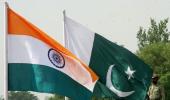

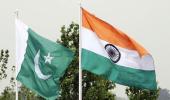




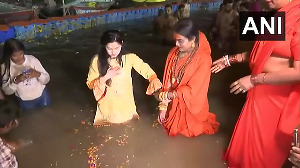
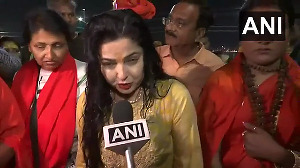
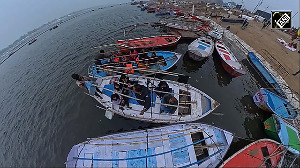
 © 2025
© 2025